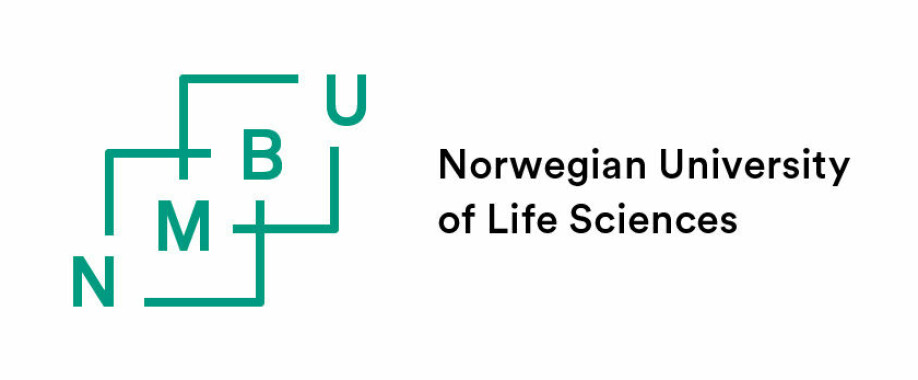Ledig stilling ved NMBU
PhD scholarship within Forest Soil Ecology
Deadline: 18.11.2019
We are looking for a PhD candidate who is eager to explore relationships between soil food-webs, plant-derived chemical compounds and carbon cycling in boreal forests.
About the position

The Faculty of Environmental Sciences and Natural Resource Management at the Norwegian University of Life Sciences (NMBU) has a vacant 3-year PhD–position related to ecosystem processes in boreal forest soils.
A large part of the global terrestrial carbon pool is stored in boreal forest ecosystems, with a major fraction stored belowground. Therefore, in order to better understand the global C cycle, we need to advance our understanding of the mechanisms controlling the stability of C in belowground organic matter. Many plant species produce various defence compounds (often phenolic compounds) which also play an important “after-life” role in the ecosystem. These compounds may influence carbon and nutrient cycling by changing litter quality, reduction of microbial activity or changes in microbial community structure. Apart from the microbial community, soil organisms such as nematodes, arthropods, enchytraeids and earthworms affect litter decomposition and nutrient cycling through fragmenting and transforming litter and by affecting the decomposer community.
The main aim of this project is to evaluate the role that phenolic compounds, specifically tannins, play for carbon and nutrient cycling in boreal forest ecosystems and to what extent this is driven by the soil fauna community. We will study this in a series of lab and field experiments, in which we simultaneously manipulate the soil food-web and concentrations of phenolics and then quantify fungal and faunal biomass, tannin-complexation and litter decomposition.
Main tasks
The main activities will be related to the following tasks:
- Analysing fungal biomass in soil (ergosterol measurements)
- Analysing tannin concentration and complexation
- Study soil food webs
- Perform manipulative experiments in the field and in microcosms
- Dissemination of results
The successful candidate is expected to enter a plan for the progress of the work towards a PhD degree during the first months of the appointment, with a view to completing a doctorate within the PhD scholarship period.
Qualifications:
The successful applicant must meet the conditions defined for admission to a PhD programme at NMBU. The applicant must have an academically relevant education corresponding to a five-year Norwegian degree programme, where 120 credits are at master's degree level. The applicant must have a documented strong academic background from previous studies and be able to document proficiency in both written and oral English. For more detailed information on the admission criteria please see the PhD Regulations and the relevant PhD programme description.
The applicant must document expertise and interest in the research subject.
Required Academic qualifications:
- A relevant master’s degree in ecology, biology, forest science, or similar, with good results.
- Fundamental knowledge in ecology.
The following experiences and skills will be emphasized:
- Experience with laboratory work
- Motivation for the outlined research project
- Documented experience with statistical analyses
Personal characteristics important for the position are:
- Strong motivation and commitment
- Ability to work independently as well as the ability to cooperate under varying conditions (e.g. under field- and lab conditions).
- Good knowledge of the English language – both oral and written.
- Good communication skills.
- High work capacity
Remuneration and information
The position is placed in government pay scale position code 1017 PhD Fellow. PhD. Fellows are normally placed in pay grade 54 (NOK 479.600,-) on the Norwegian Government salary scale upon employment and follow ordinary meriting regulations.
Employment is conducted according to national guidelines for University and Technical College PhD scholars.
For further information, please contact:
- Dr Johan Asplund, Associate Professor.E-mail: johan.asplund@nmbu.no; phone +47 67231654
Information for PhD applicants and general Information to applicants .
Application
To apply online for this vacancy, please click on the 'Apply for this job' button above. This will route you to the University's Web Recruitment System, where you will need to register an account (if you have not already) and log in before completing the online application form.
Application deadline: 18 November 2019 .
Applications should include (electronically) a letter of intent, curriculum vitae, full publication list, copies of degree certificates and transcripts of academic records (all certified), and a list of two persons who may act as references (with phone numbers and e-mail addresses). Publications should be included electronically within the application deadline. The relevant NMBU Department may require further documentation, e.g. proof of English proficiency.
Printed material which cannot be sent electronically should be sent by surface mail to the Norwegian University of Life Sciences, Faculty of Environmental Sciences and Natural Resource Management, P.O. Box 5003, NO-1432 Ås, within 18 November 2019 . Please quote reference number (19/05048)
If it is difficult to judge the applicant’s contribution for publications with multiple authors, a short description of the applicant’s contribution must be included.






